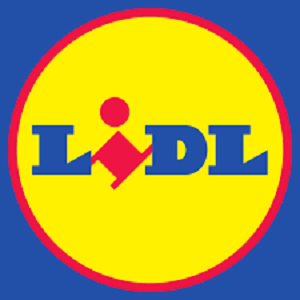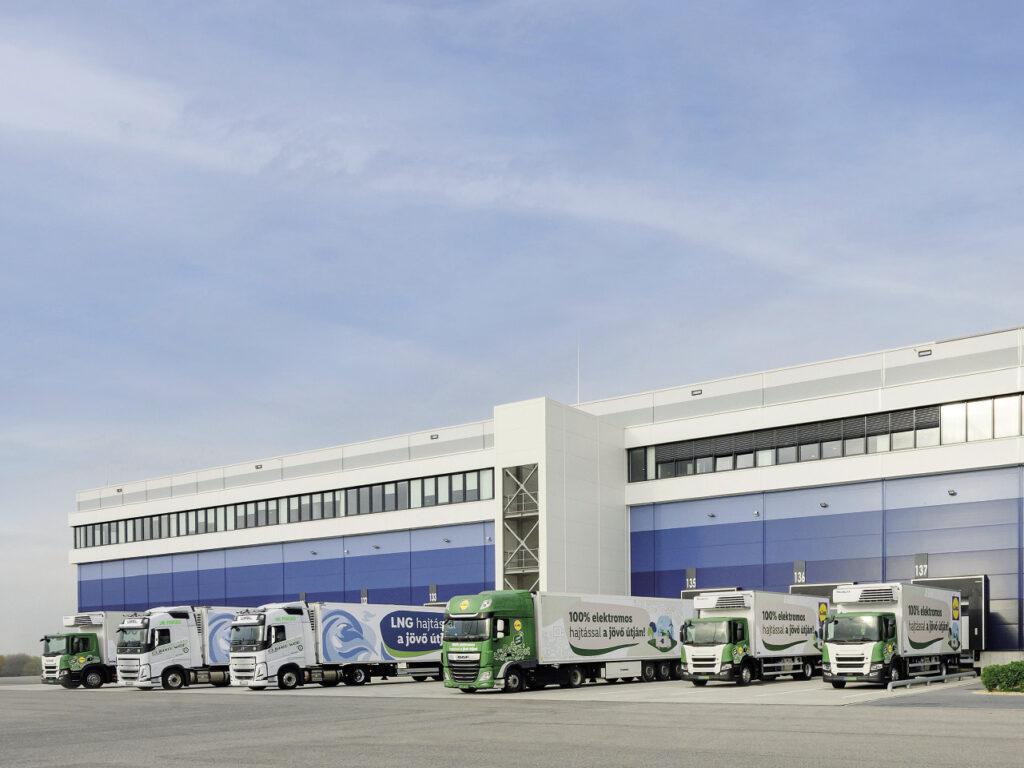Lidl’s unique fleet of trucks
For Lidl Magyarország, Hungary’s No.1 grocery retailer, sustainable operations are among the most important goals in order to create a liveable future. This is why the discounter chain has put new alternative-fuel trucks into daily service: three 18-tonne electric trucks, one 40-tonne electric truck, and six 40-tonne LNG trucks are now making deliveries.

The new 18-tonne e-trucks are powered by 5 batteries, and even their charging is emission-free: at Lidl’s logistics centres they are charged with 100% renewable electricity. They can drive around 120km on a single charge. With space for up to 18 pallets of goods, a single truck can serve several stores. The 40-tonne electric truck is powered by 6 192.3 kWh batteries, has a range of approximately 200km, and can be recharged in 5 hours. As for the LNG-powered tractor trailers, they have a range of around 750km.

Lidl Magyarország aims to achieve a 15% reduction in CO2e emissions (kg/km) by 2030 compared to the 2021 level, by replacing conventional diesel trucks with alternative-fuel vehicles. “Lidl Magyarország has reached a milestone by switching to more environmentally friendly and sustainable store delivery. As a responsible company, we are proud that Lidl will have the largest fleet of alternative-fuel vehicles for store deliveries among Hungarian grocery chains”, said Judit Tőzsér, head of company communication at Lidl Magyarország. (x)
Related news
Lidl Magyarország wins Top Employer award once again
🎧 Hallgasd a cikket: Lejátszás Szünet Folytatás Leállítás Nyelv: Auto…
Read more >Lidl is building a new administrative and logistics centre in Straubing
🎧 Hallgasd a cikket: Lejátszás Szünet Folytatás Leállítás Nyelv: Auto…
Read more >Related news
Italy is the guest country at the SIRHA Budapest 2026 trade fair
🎧 Hallgasd a cikket: Lejátszás Szünet Folytatás Leállítás Nyelv: Auto…
Read more >Renewal at Szarvasi Mozzarella – the company’s commercial activities have been strengthened under the leadership of Máté Besenczy
🎧 Hallgasd a cikket: Lejátszás Szünet Folytatás Leállítás Nyelv: Auto…
Read more >Lidl Magyarország wins Top Employer award once again
🎧 Hallgasd a cikket: Lejátszás Szünet Folytatás Leállítás Nyelv: Auto…
Read more >







